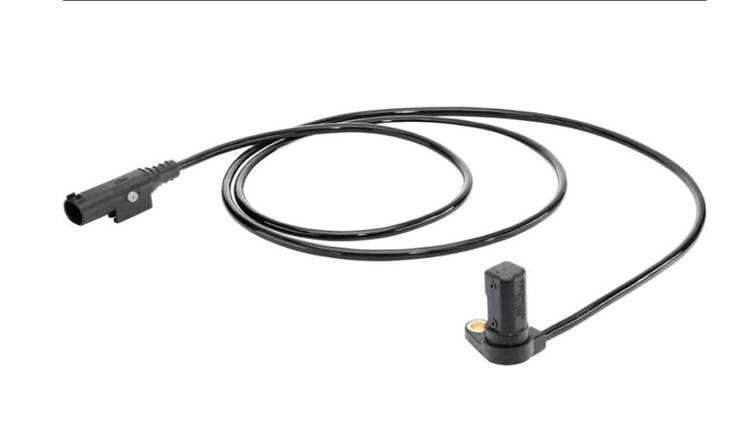Tier 1 supplier Continental Automotive India has achieved a key milestone of producing 50-million-wheel speed sensors at its Manesar plant, which it has been progressively manufacturing since 2010.
The technology company says it has been consistently increasing the wheel speed sensor production capacity, which is driven by India’s safety legislation and local demand. In August 2019, Continental India had reached a similar production milestone, achieving one million speed sensors a month.
The recent milestone reflects its ongoing commitment towards Vision Zero: zero fatalities, zero injuries, zero crashes, supporting OEMs with localised products of the global quality standard at an affordable cost.
Continental has been progressively manufacturing Wheel Speed Sensors at its Manesar plant since 2010. The localisation efforts substantially benefited from the safety regulations introduced in April 2019, mandating ABS in all passenger cars and 2-wheelers upwards of 125cc caused a spike in demand for wheel speed sensors.
Wheel speed sensors aid safety by providing the vehicle speed signals to Anti-lock Braking System (ABS) and Electronic Stability Control (ESC). The precise signals inputs are used to prevent the wheels from locking or spinning, thus taking appropriate control action to maintain the vehicle’s stability at any steering angles.
Sukhdeep Sandhu, Head of the Passive Safety and Sensorics (PSS) business unit, Continental Automotive India, said, “At Continental, we have a rich history associated with vehicle safety. Over the years, we have introduced several safety-critical products that have positioned us as pioneers of vehicle safety technologies. The road fatalities in India are record high. We have a critical role in bringing innovative integrated safety technologies to curtail on-road fatalities to a drastic extent.”
“With our standardised processes and systems, OEMs are greatly benefiting from our localisation initiative. We deliver quality products at an affordable cost with the support of our local development and manufacturing ecosystem. From design, prototyping, validation, and production, the business unit demonstrates product competence and contributes to the road safety value chain,” added Sandhu.
Ronan Le Roy, Head of the Global Segment Sensors and Subsystems within the Passive Safety and Sensorics (PSS) business unit, Continental said: “The Passive Safety and Sensorics business unit in India is a perfect example for ‘in the market, for the market,’ a systematic strategy that we follow. Supplying to local market aside, we are also exporting our products to Japan, ASEAN, and European markets.”
Continental India says it has been developing advanced safety technologies – both active and passive safety systems and has been setting trends in various markets by introducing the most relevant safety systems to help keep the vehicles on the roads safe, assisting drivers intuitively in averting any possible crashes and reducing fatality in a post-crash scenario. In India, too, Continental has been a leading player to introduce technologies suiting the local market requirement. For instance, Continental developed one channel ABS in India, especially for entry-level two-wheelers, even before safety legislation was implemented.
In the last few years, it has added significant milestones such as localisation of ABS, ESC, and airbag control units further witnessed full capacity utilisation and expansion in a short period. Apart from the production accomplishments, the R&D team’s work has been compelling in tailoring safety solutions to suit the local needs complementing a highly price-competitive market. Continental is developing a slew of safety technologies from safety sensors to highly sophisticated ADAS technologies and the Occupant Safety Monitoring System.
The Tier 1 supplier says in addition to manufacturing new products, it has also implemented Industry 4.0 practices apart and has set high sustainability goals to reduce environmental impact. Some of these standards include opting for renewable energy sources, a higher proportion of recycled waste, achieving carbon-neutral by 2040, and by 2050 eliminate CO2 emissions in all the stages of its value chain. The Manesar plant is also increasing the representation of the women workforce on the shop floor.
Ashish Srivastava, plant manager, Manesar, Continental India said, “We have been recording steady growth in our production capabilities. We are expanding our capacity rapidly, and our output likewise is scaling new milestones. It is a proud moment for us, reaching 50 million Wheel Speed Sensor units to date. We are aggressively pursuing our sustainability goals, too, responsibly reducing carbon emission in all the possible stages. We are on target to utilise 100 per cent of energy from renewable sources by the end of 2020. We tend to extend our sustainability goals to our suppliers and third-party logistics as well. Our goal to increase the women workforce on the shop floor is commending our diversity initiative.”
